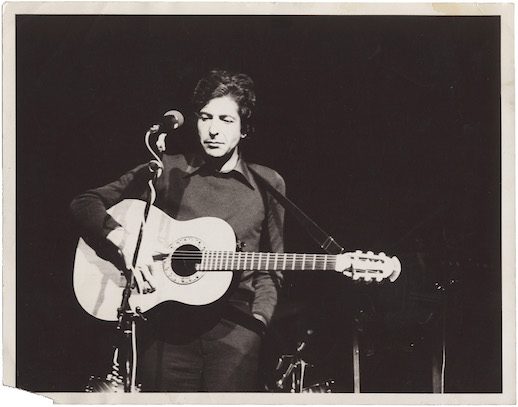 Leonard, Hand In Pocket, photograph by Michelle Clement
Leonard, Hand In Pocket, photograph by Michelle Clement
So, in the space of forty-eight hours, we get Trump and lose Leonard Cohen. Trump is nothing new. He’s just let the mask slip in a way that those who lead us normally don’t. We’ve long lived under the rule of such men. Men who rapaciously seek power for their own ends. Men who add nothing, but merely take. Men without poetry.
Leonard Cohen was not such a man. He illuminated the world with his songs and his music. He saw poetry in life, found beauty in the strength and weakness of our humanity and humour in the dark nights of the soul. Now he’s gone, our world is a little bit darker, but though he’s gone, his voice, at a seemingly ever lower frequency, sings on.
I first heard him as a teenager when I borrowed The Best of Leonard Cohen from my local library. I was just beginning to discover that there was music beyond the charts and the radio so I was totally unprepared for what I heard when the needle of my battered old turntable hit the scuffed black vinyl. Totally unprepared, yet utterly ready. His music felt like home. I was fourteen or fifteen and trying to make sense of my place in the world, my thoughts a constantly moving dance of change and uncertainty. But as I listened to the first side of that album, the dance stopped. Leonard Cohen, his words, his music, his voice, made my thoughts slow down and fall into place in a way that made some kind of sense. His songs brought order to my universe, but, more than that, they also showed me a way to be. Here, it seemed to me, was what it was to be a man. I aspired to have just something of his calmness, grace and wit. More than thirty years later, I still do. I still aspire.
Leonard Cohen soon became mine, in the way that teenagers looking for identity make the things that they love part of their sense of self. I found out that his music was considered to be “depressing”, but this was something I wasn’t able to understand. The music I heard on the radio was depressing. Most of it had no poetry. Leonard’s music, on the other hand, did. It was poetry, pure and simple. How can creating something of beauty from the sorrow and joy of life ever be depressing? The very act of such creation is surely an affirmation. “There is a crack in everything, that’s how the light gets in” and that light has always been part of Leonard’s music.
Poetry is the shaping of the world into words in such a way that they are both resonant and beautiful, and Leonard was a master of that craft. More restrained than florid, he had a gift for seeming to touch upon the deeper truths of life. It’s hard to imagine some of the lines he wrote were ever unwritten. To imagine that no one else had ever placed that particular combination of words together in that particular way. Often biblical in feel, his words can be as close to prayer as song. Fittingly, Cohen means priest in Hebrew, as Leonard was like a secular priest, ministering to the lost children of the Earth.
Last week, in The Guardian, Laura Barton referred to Leonard saying that “All human activity is flawed … it is by intimacy with the flaw that we discern our real humanity” and that seems to be at the heart of his music. It’s the same idea as “There is a crack in everything, that’s how the light gets in”. This week, in the same newspaper, George Monbiot has written that to combat the forces of neo-liberalism, we need to reclaim our humanity, to write a new narrative, but maybe that narrative is already there in the work of singers, artists and writers like Leonard Cohen.
We need to look to the poetry in life, to reclaim the world from those without it.
Leonard Cohen, September 21, 1934 – November 7, 2016
Tim Tooher on Caught by the River